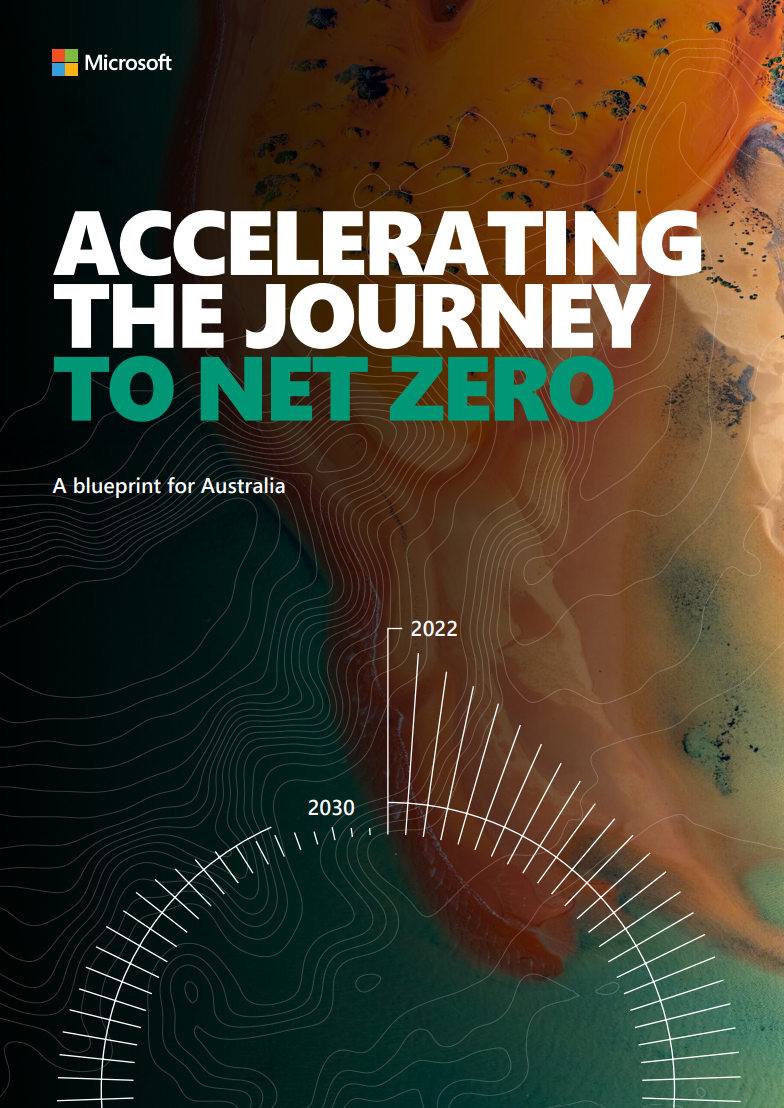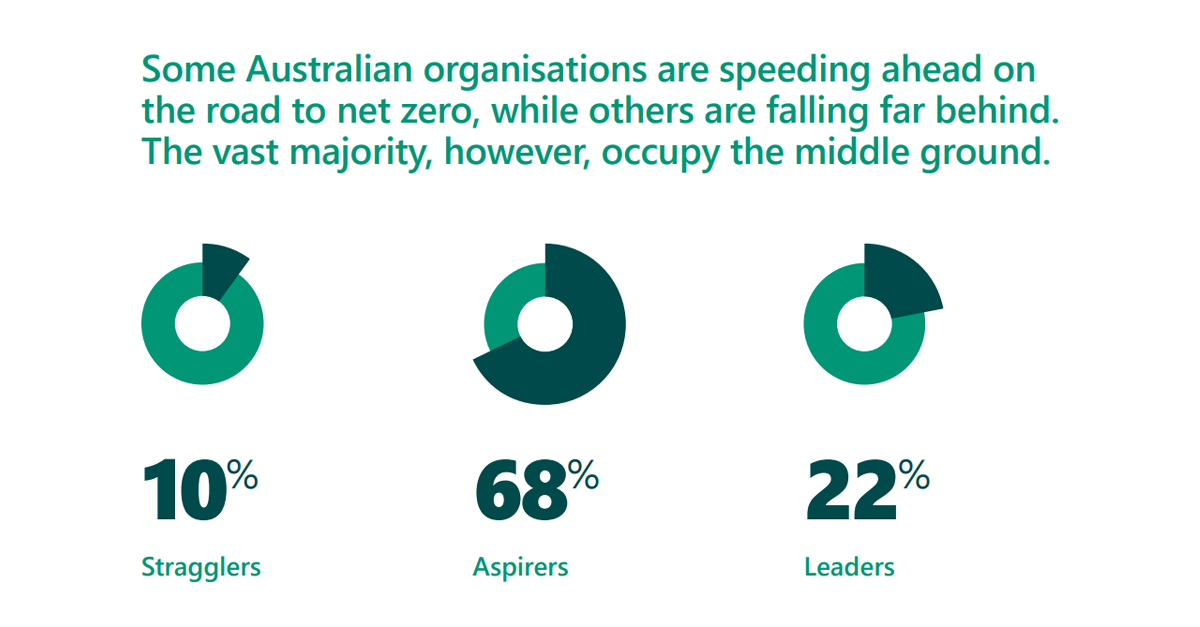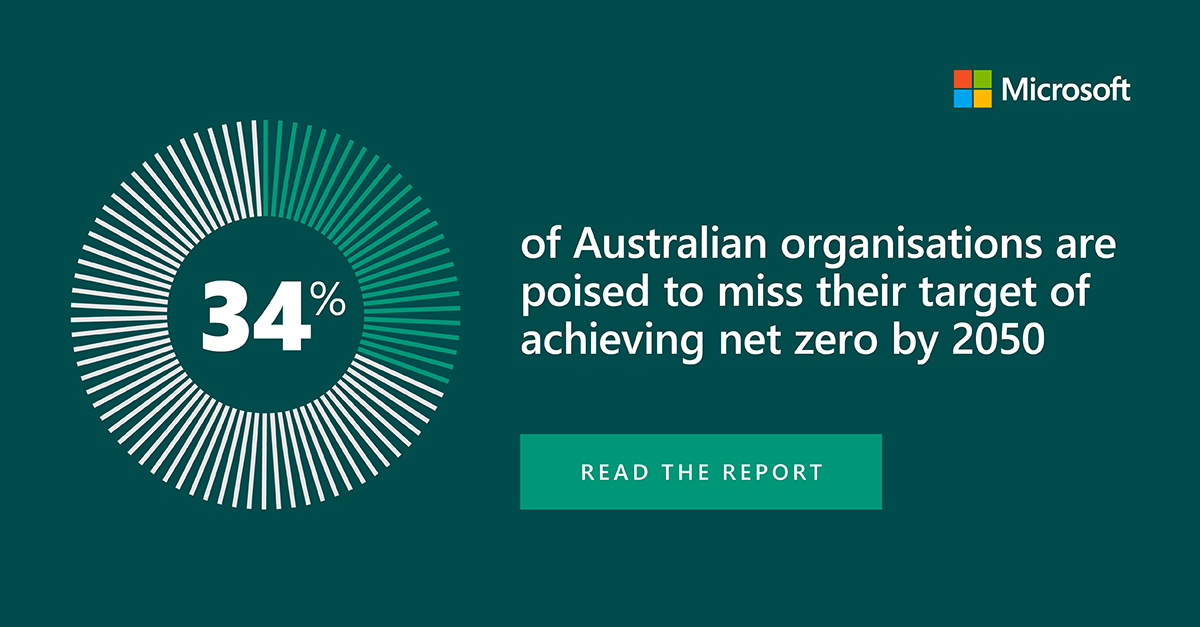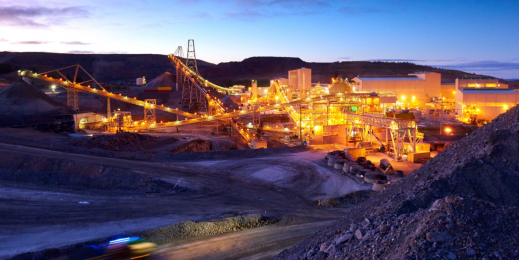
More than one-third of Australian organisations will miss their net zero targets
34% of large Australian organisations will miss their 2050 net-zero targets, according to research from Goldsmiths, the University of London, in partnership, with Microsoft Australia.

The research report, Accelerating the journey to net zero: A blueprint for Australia, reveals a strong desire for a more sustainable future among Australian organisations, with three-quarters setting 2050 net zero targets.
Yet it also finds a gap between these organisations’ sustainability ambitions and their ability to deliver on them. In fact, this ‘delivery deficit’ exists in 68% of Australian organisations.
Despite strong performance in renewable energy adoption and sustainable supply chains, Australian organisations are lagging in the critical areas of technological innovation, decarbonisation, funding, skills and natural capital accounting, according to the research.
The report draws on surveys of 686 Australian business leaders and thousands of full-time employees, as well as in-depth interviews with prominent sustainability experts from across government, industry and academia. It classifies the surveyed organisations as ‘stragglers’, ‘aspirers’ or ‘leaders’, based on their performance against seven dimensions of a sustainability scorecard.
Top challenges for business leaders
The research found that Australian organisations are experiencing a number of challenges in their road to net zero.
-
Skills– 40% do not have the in-house expertise and skills to support their sustainability strategies.
-
Leadership – 38% lack a clear organisational strategy for sustainability.
-
Mindset – 36% struggle to shift organisational culture and embed sustainable thinking.
-
Government guidance – 32% cite not having clear government guidance for action as a challenge, but the report points to the need for whole systems thinking, including collaboration between government, commerce, academia, and NGOs to collectively address barriers to net zero.
-
Technology– 53% have difficulty accessing the technology they need to support their sustainability initiatives.
According to Brett Shoemaker, Sustainability Director, Microsoft ANZ, “Australian organisations are on board, but off track. Pledges and commitments are a critical first step. But the more significant, long-term impact will come from our ability to overcome the challenges and obstacles that will inevitably arise as we act on those commitments.
Our study shows that leaders are struggling to operationalise their sustainability plans, so we have created a blueprint, using insights from leading experts, academics, and Australian organisations, to help organisations accelerate their progress.
The role of technological innovation
Australia plans to reach net zero by 2050 largely through technology-led sustainability strategies.
According to the research, 80% of Australian organisations recognise that technological innovation has a key role to play in improving environmental sustainability.
However, just 51% are investing in research and development (R&D) for new technologies that will improve the environmental sustainability of their products, services and/or operations. What’s more, only 50% are investing in technology to measure their carbon emissions.

However, those organisations identified as ‘leaders’ in the report prioritise innovation above all else and are actively exploring how technology can be used to amplify and accelerate their net-zero strategies. They are distinctive in their ability to invest in technology that measures and augment their sustainability goals.
Of the 22% identified as ‘leaders’, 97% have already estimated the annual cost of implementing their organisation’s sustainability plans; 95% innovate by regularly substituting unsustainable processes or products with newer, more environmentally sustainable alternatives, and 96% invest in technology to measure their carbon emissions.
According to the report’s lead researcher, Dr Chris Brauer, “Sustainability is the language of our times. Business leaders today are considering and talking about sustainability in direct correlation to business performance and growth.
“The research reveals that innovation and technology are the forefront of the leading Australian organisations’ approach to tackling sustainability. But for aspirers and stragglers to keep up, there needs to be greater collaboration across government, business and the community.
For Australia to achieve net zero, it needs smart technologies working together with a motivated and energised community of corporate energy citizens.
A Blueprint for change
Accelerating the journey to net zero: A blueprint for Australia shows that urgent action is needed from organisations if they are to meet their sustainability targets by 2050. Drawing on insights from leading sustainability experts and academics, it provides a clear, seven-step action plan to help them do it.
Recommended actions include:
-
Setting explicit, quantitative commitments for carbon reduction and removal.
-
Measuring and monitoring emissions across products, services and operations.
-
Building in-house expertise and gaining multi-stakeholder buy-in to close funding gaps and invest for tomorrow.
-
Evaluating the role of natural capital and monitoring supply chains for environmental impact.
-
Driving collective change by collaborating with government, commerce, academia, and NGOs to connect sustainability to the broader business strategy and solve industry-wide challenges.
-
Designing sustainable infrastructure to use energy more efficiently.
-
Accelerating tech innovation by deploying robotic process automation, machine learning, and digital twins to drive greener outcomes.
About Microsoft
Microsoft (Nasdaq “MSFT” @microsoft) enables digital transformation for the era of an intelligent cloud and an intelligent edge. Its mission is to empower every person and every organisation on the planet to achieve more.
For media enquiries, please contact:
Rudolf Wagenaar, Commercial Communications Lead, Microsoft Australia
Email: [email protected] // Mobile: 0439 082 550








